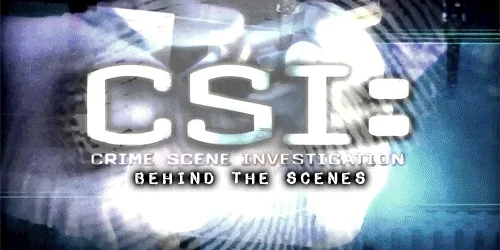
This logo isn't an ad or affiliate link. It's an organization that shares in our mission, and empowered the authors to share their insights in Byte form.
Rumie vets Bytes for compliance with our
Standards.
The organization is responsible for the completeness and reliability of the content.
Learn more
about how Rumie works with partners.
Forensic investigation is a gruesome but necessary job that deals with crime scene reconstruction. Do you have what it takes?

Forensic investigators (also known as crime scene investigators or "CSIs") are more than what TV shows make them out to be. Crime scenes can be nasty and repulsive.
Investigators aren't as glamorous as TV CSIs — no high heels or flowing hair is allowed. Most of the investigative work is done out of a CSI van, too. Lab work and evidence collection are done in two different places.
How forensic investigators contribute to society
Crime scene investigation involves examining the place where a crime has occurred. Forensic investigators scan these crime scenes looking for any evidence that will help identify the person responsible for committing the crime.

They apply sciences such as physics, chemistry, biology, computer science, and engineering to matters of law to strengthen a legal case.
The forensic investigator's contribution to society comes in providing their research and findings to help "establish or exclude an association" between a suspect and a committed crime.
Did you know?
Because of crime scene shows, like CSI, people have become more involved with forensics. Called The CSI Effect, it has caused jurors to have misconceptions about evidence and has caused the public to expect investigations to be solved in under an hour, when in reality it, could take months or even years.
What roles they play and what they do daily
The role of a forensic investigator is to collect evidence, perform scientific and technical analysis, and provide evidence for legal cases.

Forensic investigators work directly at crime scenes, but they may also work at law enforcement agencies. They remain on call since crime doesn't sleep, and their main job — what they do daily — is to collect evidence.

A few pieces of evidence they search for at crime scenes include:
Fingerprints
Biologicals (blood, body fluids, etc.)
Tire tracks
Footprints
Hair & fibers

A few other duties that forensic investigators perform include:
Taking photographs
Making sketches
Recording observations and findings
Cataloging and preserving evidence
Reconstructing crime scenes
Quiz
Which of these activities would a forensic investigator do? Select all that apply.
Forensic investigators visit each crime scene and collect the evidence needed to find the person responsible for committing the crime, but they don't need to be first on the scene. Forensic scientists are the ones responsible for working in the lab and processing the evidence.
Where and how they find work
You can find available work as a forensic investigator by doing a web search on a job site, such as Indeed or the Crime Scene Investigation Network. You'll need at least a bachelor's degree that is specific to the job you want to do.
 Photo by Tim Mossholder on Unsplash
Photo by Tim Mossholder on UnsplashFor example, earning a degree in criminal justice and forensic investigation will prepare you for various positions, but if you want to specialize in cyber/financial crime or digital forensics, you'll need specific courses.
Here are some positions to explore:
What's to love and hate about the job
 Pros
Pros
Demand for investigators is growing
Many specialized jobs
Exciting & gratifying to solve crimes
Work schedules are flexible
Travel opportunities
Pay & benefits are good
Opportunities to solve puzzles
Opportunity to work with a team
 Cons
Cons
Possible exposure to hazardous materials
May see gruesome & disturbing crime scenes
Work environment may be challenging
Hours may be unpredictable
May have on-call shifts
May have to testify in court
Quiz: Who would make the best forensic investigator?

Jahana
She loves working in a lab
She enjoys comparing DNA samples

Hasam
He enjoys traveling
He loves taking photographs

Alan
He enjoys solving puzzles
He doesn't like gruesome sites

Serena
She enjoys collecting things
She faints at the sight of blood
Average Pay
Take Action
 Does all this sound exciting and interesting to you? Learn more...
Does all this sound exciting and interesting to you? Learn more...
This Byte has been authored by
Wendy McMillian
Learning Designer
B.S., M.A.T.

